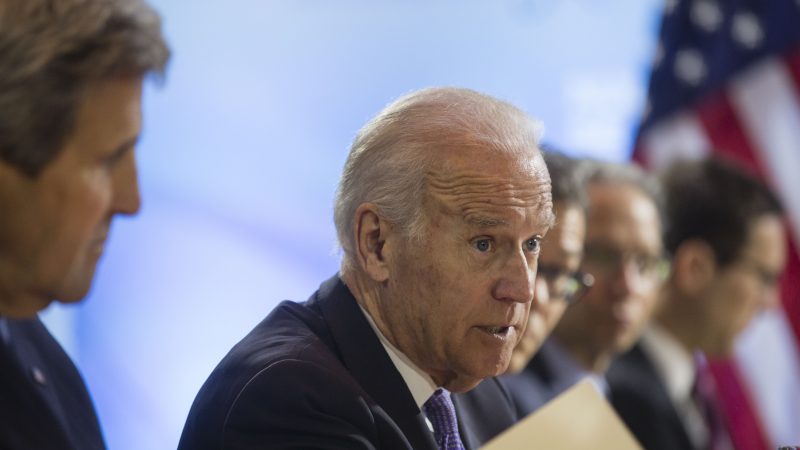
Joe Biden’s historic victory in the United States presidential election was a triumph for compassion, decency and integrity. The American people have chosen a path of unity over division, of hope over fear. The incoming Biden administration has an opportunity to fill the vacuum in global leadership left by its predecessor. As the world continues to battle Covid-19 and the challenges of climate change, the issues of multilateral disarmament and non-proliferation of nuclear weapons rage on.
Whilst there are many foreign policy challenges ahead, one of the most immediate is the imminent expiration of New START (Strategic Arms Reduction Treaty) – the last legally-binding agreement that restricts the number of nuclear warheads held by the US and Russia. Permitting the treaty to lapse in just three months’ time would risk undermining the decade-long political stability that it has helped to bring about.
Alongside the withdrawal from the World Health Organisation and Paris Agreement, the Trump administration ended US engagement in several disarmament treaties with Russia. And while it is encouraging to see a successor who has previously committed to a ‘no first use’ approach to nuclear weapons, the importance of these kind of agreements should not be underestimated.
New START can only be extended once more, and at present Russia has only offered a one-year extension – a timeframe that would be insufficient to negotiate a new nuclear disarmament treaty of similar scope or significance.
The incoming Biden administration will have an opportunity to encourage an extension of the New START agreement of up to five years, allowing for more meaningful negotiations and the prospect of encouraging China’s participation in any new treaty. An extension of this length would also allow the United Nations to play a more central part in the independent verification and compliance monitoring of nuclear armed states.
At this vital moment, the United Kingdom has an important role to play. If President-Elect Biden makes good on his commitment and delivers on New START, the UK government must leverage its diplomatic influence in Washington – diminished though it may be by this current government – to go beyond and sign up to the Comprehensive Test Ban Treaty (CTBT). Without the ratification of the US and China, the treaty is restricted in its effectiveness by the notable absence of two of the largest nuclear powers.
As a permanent member of the UN Security Council, the UK is uniquely positioned to help break the impasse. But the mediation of such an agreement must be predicated on the understanding that any nuclear test risks undo the progress made over the past six decades, and that nuclear brinkmanship serves only to escalate tensions and further diminish the prospect of long term stability.
Beyond the political and diplomatic process, it is important that we also remember the human consequences of nuclear testing, already evident in Nevada, New Mexico, Arizona and Utah where significant cancer clusters have been linked to previous testing. The horrific consequences of nuclear testing for those communities exposed to nuclear test fallout should be a driving force in bringing governments to the negotiating table.
To date, the current UK government has made no meaningful progress on multilateral disarmament. It failed to send representatives to the negotiations of the UN Treaty on the Prohibition of Nuclear Weapons, and joined the previous US administration in urging signatories to withdraw their support.
We must be realistic and accept that the world needs US cooperation if non-proliferation agreements are to succeed in the same way the historic Nuclear Proliferation Treaty (NPT) has for over half a century. As the United States looks set to re-engage with the world once again, the UK must see it as an opportunity to do the same – beginning at the delayed NPT Review Conference in 2021.
Come January, the UK will find an administration in the White House that shares our objectives when it comes to nuclear disarmament. We must seize this opportunity to work with democratic partners, across the Atlantic and around the world, to push multilateral nuclear disarmament back up the global agenda and take the steps necessary to bring about a world free from the threat of nuclear weapons.




More from LabourList
‘Labour is being badly misled on housing’
Reeves bets on patience over populism
‘Energy efficiency changes must work for older private renters’